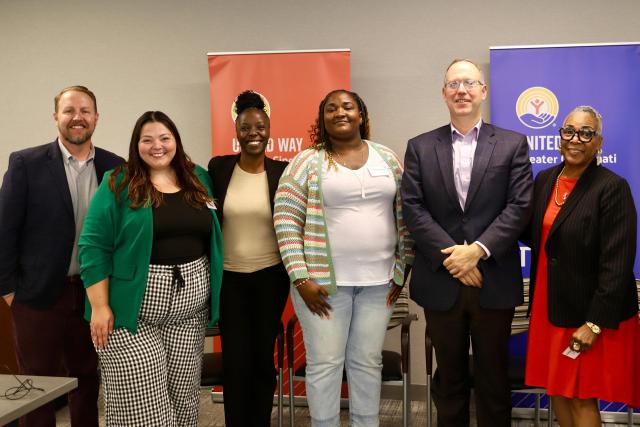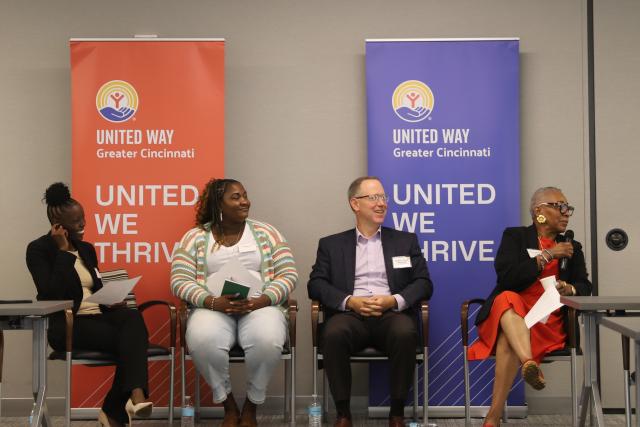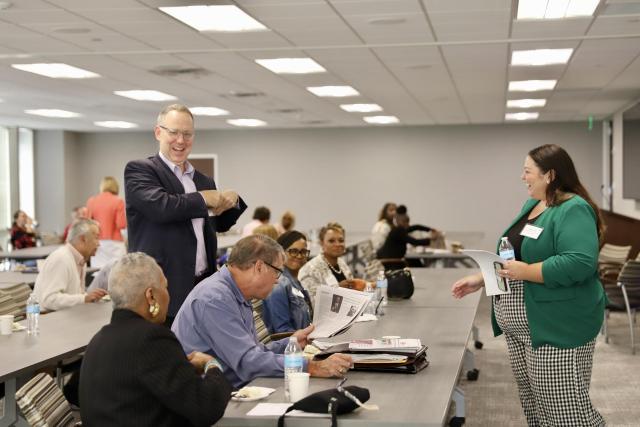How Lifting Up Community Voices Can Impact the State of Housing

By Hailey Barr, Public Policy & Advocacy Manager, United Way of Greater Cincinnati
CINCINNATI (October 2024) – United Way of Greater Cincinnati’s latest Policy With a Splash of Coffee focused on the impact of lived experience advocacy. State Sens. Louis W. Blessing, III and Catherine D. Ingram as well as community advocate Kendra Davis joined us for the panel discussion. They shared insights into their relationship with this type of work and its impact on Ohio housing policy.
As a strong community advocate, Davis spoke about the importance of diverse perspectives. She compared lived experience advocacy to gardening. “When you raise voices together for good, you grow a garden of change,” said Davis. “But never forget it all started with a seed.”

“When you have somebody with experience come to the table and your ears are truly open, you can make beneficial change,” said Davis. Blessing said he always reminds himself to spend a day in the shoes of those impacted by policies. He shared how his role as a father makes him a much more effective champion for early childhood education, having seen the challenges firsthand.
Not all effective advocacy work requires firsthand experience, though. “You don’t have to be old to understand that seniors need all the help they can possibly get,” said Senator Ingram. “You have a mother, a father, an auntie, or somebody else might be there. You can advocate for them without being in that position” she said. “You can advocate for education, because you know it’s the best way to get out of poverty; it’s the best way to improve your life.”
Davis got started in housing policy advocacy in 2019 when former Cohear President, now Representative Dani Isaacsohn, knocked on the door of her apartment, a Cincinnati Metropolitan Housing Authority (CMHA) property, asking if she would speak about affordable housing during a United Way conference. She came to understand during that event that representatives truly care about these issues, but they might not know the best way to address them. After that, Davis started regularly looking for opportunities to shed light on what she viewed as inadequacies.

Davis has learned a lot along the way. “Everything is interconnected. That’s what I bring to housing advocacy – the fact that one thing is tied to the other,” she said.” To fix one side, you must fix the other.”
The policymakers offered perspective on framing housing as a bipartisan issue. Blessing said he finds it’s valuable to highlight the economic impact of high housing costs, which is a competitive disadvantage. Higher housing costs mean higher labor costs, and that’s a major driver for most businesses.
Ingram discussed housing through the lens of all income levels. She said there’s an overall inventory issue.
The panelists agreed that housing isn’t a partisan issue, but it is a real problem in Ohio that needs to be addressed. It’s important that voices from all walks of life are at the table sharing their experiences as policymakers consider how to make improvements. Community advocates must continue to share their experiences with stakeholders to drive positive change so all families can thrive.